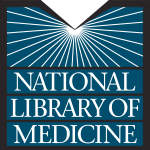- Industrie: Library & information science
- Number of terms: 152252
- Number of blossaries: 0
- Company Profile:
The National Library of Medicine (NLM), on the campus of the National Institutes of Health in Bethesda, Maryland, is the world's largest medical library. The Library collects materials and provides information and research services in all areas of biomedicine and health care.
Damage to the peripheral nervous system, which includes the nerves outside of the brain and spinal cord. Symptoms include pain, numbness, tingling, swelling, and muscle weakness. Peripheral neuropathy may be due to injury, infection, disease (such as diabetes), autoimmune diseases (such as chronic inflammatory demyelinating polyneuropathy), or certain antiretroviral (ARV) drugs.
Industry:Health care
Death of bone tissue (osteonecrosis) due to a lack of blood supply. Avascular necrosis (AVN) most commonly affects the hip. Symptoms include pain in the affected area of the body, limited range of motion, joint stiffness, muscle spasms, and limping. AVN is associated with several medical conditions, including cancer and HIV infection.
Industry:Health care
Death of liver cells. Hepatic necrosis may be caused by certain antiretroviral (ARV) drugs.
Industry:Health care
Delivery of a baby by a surgical incision through the mother's abdominal wall and uterus. In some pregnant women infected with HIV, a scheduled Cesarean delivery may reduce the risk of mother-to-child transmission of HIV.
Industry:Health care
Destruction of red blood cells. Hemolysis occurs as part of the natural life cycle of red blood cells, or it may be caused by certain conditions or drugs.
Industry:Health care
Development of larger-than-normal breasts in males. Gynecomastia is due to excess growth of breast tissue, not fat tissue. Gynecomastia is sometimes caused by natural hormonal changes, but it can also be due to use of certain medications, including antiretroviral (ARV) drugs.
Industry:Health care
Diagnostic criteria for AIDS established by the Centers for Disease Control and Prevention (CDC). To be diagnosed with AIDS, a person with HIV must have an AIDS-defining condition or have a CD4 count less than 200 cells/mm³ (regardless of whether the person has an AIDS-defining condition).
Industry:Health care
Difficulty thinking, reasoning, or remembering. Some people with HIV may have cognitive impairment.
Industry:Health care
Disease of the heart muscle. Cardiomyopathy weakens the heart muscle, making it hard for the heart to pump blood to the rest of the body. HIV infection or use of some antiretroviral (ARV) drugs may cause cardiomyopathy.
Industry:Health care
